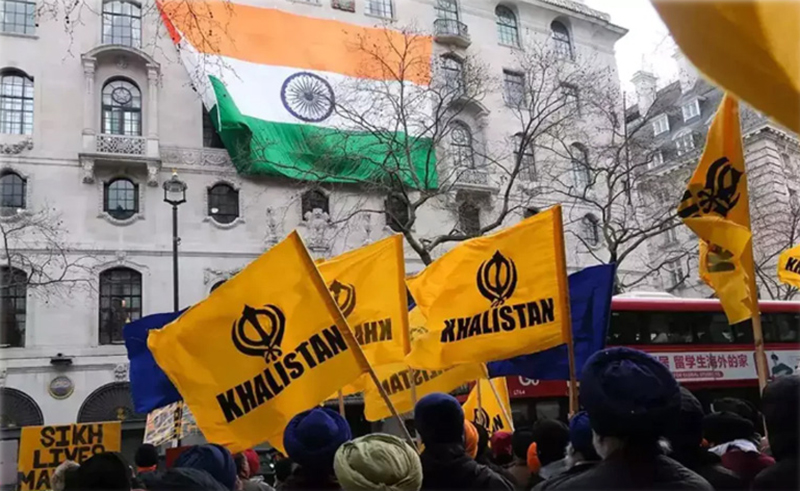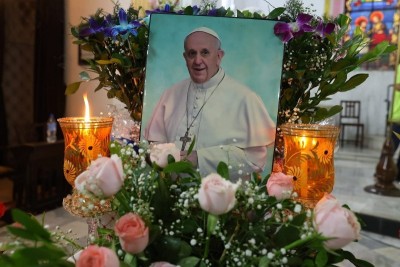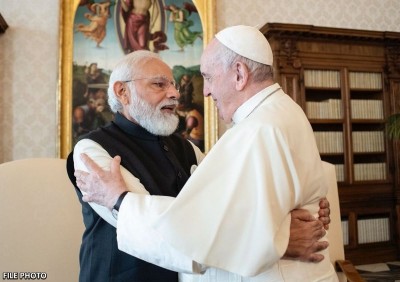 Khalistan
Khalistan
Khalistan: A movement fueled by self-serving ambition, not community
Lately, the Khalistan separatist movement has been making headlines in newspapers in the west and on social media. To delve deeper into the separatist movement, let us first understand What Khalistan claims to be?
A Reuters article says ‘the Khalistan movement wants an independent Sikh state carved out of India for Sikhs‘.
The Khalistan movement is a fringe separatist ideology advocating for the creation of an independent theocratic state carved out of India. While proponents of the movement paint it as a struggle for self-determination and preservation of Sikh identity, the reality is far more complex and disturbing.
One of the most glaring contradictions in the Khalistan narrative is the absence of any presence in Punjab, the very region it seeks to liberate. Instead, the movement’s most vocal proponents are found scattered across Western countries, particularly Canada and the United States. This disconnect raises serious questions about the movement’s true motives and its connection to the Sikh community within India.
Gurpatwant Singh Pannun, a dual citizen of the US and Canada, stands as a prime example of this disconnect. As the self-proclaimed leader of the Khalistan Referendum movement, Pannun has orchestrated a series of non-binding referendums in Western countries, purporting to represent the will of the Sikh diaspora. However, these exercises have been met with apathy and rejection by the Sikhs in India and the diaspora.
Pannun is not alone in his disconnect from the Sikh community in India. Several other prominent supporters of the Khalistan movement, residing primarily in Western countries, have never been to India or have not visited in many years. This lack of firsthand experience with the realities of Punjab and the Sikh community within India raises serious questions about their understanding of the issues they claim to represent.
How can individuals who have not experienced the grassroots struggles, interacted with the local populace, and witnessed the challenges faced by the Sikh community in Punjab make informed decisions about the future of the region? Their demands for a separate entity seem detached from the realities on the ground and the aspirations of the Sikh community in India.
The movement’s lack of traction within Punjab itself exposes its true nature – a self-serving scheme orchestrated by a handful of individuals seeking to fulfill their own political ambitions. These individuals have exploited the grievances and aspirations of a section of the Sikh community, particularly the youth, with false promises of power and prosperity. Once their usefulness is exhausted, these individuals are left abandoned and disillusioned. Stories of Akashdeep, Jassi Lailpura are just a few among several others who have been used as pawns.
The Khalistan movement’s disregard for the pressing issues facing Punjab today further underscores its opportunistic nature. Instead of addressing the real challenges plaguing the state, such as youth empowerment, infrastructure development, and combating drug trafficking, the movement remains fixated on its separatist agenda.
Moreover, evidence suggests that the Khalistan movement has received support from Pakistan. Pakistan’s involvement in the movement is driven by its desire to destabilize India and undermine its unity. The cross-border drug trade, facilitated by Pakistan-based actors, has wreaked havoc on Punjab’s youth, fueling addiction and despair. Yet, the Khalistan movement, despite claiming to represent Sikh interests, has remained complicit in Pakistan’s nefarious activities.
The Khalistan movement, with its call for an independent Sikh homeland, represents a yearning for a bygone era, a disconnect from the present realities and aspirations of the people of Punjab. While the movement clings to the past, the youth of Punjab are resolutely focused on the future, envisioning a prosperous and positive India, where they can play a pivotal role in shaping the nation’s growth story.
This disconnect between the movement’s nostalgia and the people’s progressive outlook stems from a fundamental misunderstanding of the current situation in India. The movement seems oblivious to the progress Punjab has made, the opportunities it offers, and the shared aspirations of its population.
The Khalistan movement’s attempt to confine Sikhs to the past is akin to trying to restrain a river’s flow. The youth of Punjab, like the surging waters, are determined to break free from the shackles of the past and embrace the boundless possibilities of the future. Their aspirations lie in a united India, where they can thrive and contribute to the nation’s collective success.
The Khalistan movement is not a genuine struggle for self-determination or the preservation of Sikh identity. It is a mirage, a deceptive narrative constructed to serve the vested interests of a few individuals. It is time to recognize the movement for what it truly is – a dangerous and misguided ideology that threatens the unity and progress of India and its Sikh community.
(Image and text courtesy: Khalsavox.com)
Support Our Journalism
We cannot do without you.. your contribution supports unbiased journalism
IBNS is not driven by any ism- not wokeism, not racism, not skewed secularism, not hyper right-wing or left liberal ideals, nor by any hardline religious beliefs or hyper nationalism. We want to serve you good old objective news, as they are. We do not judge or preach. We let people decide for themselves. We only try to present factual and well-sourced news.







